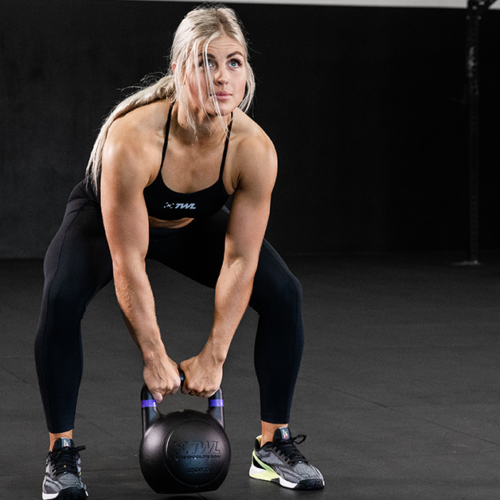Nutrition matters. We’ve talked before about the benefits of counting macros, why you should care about micronutrients, if breakfast is really that important, and the ketogenic diet. This time, let’s focus on intermittent fasting — what it is, a few of the benefits, and some pro intermittent fasting tips to make this style of nutrition work better for you.
What is Intermittent Fasting?
Before we get into our intermittent fasting tips, let’s quickly define it.
Intermittent fasting (IF) means that you alternate between periods of eating and periods of fasting. As opposed to telling you what you can eat, IF tells you when you can eat it. While the exact times can vary, one of the more common patterns is fasting for 16 hours and then allowing food the other 8 hours. Others will fast for 12 hours, while some might fast for a full 24 hours, once a week.
The idea here is that our hunter-gatherer ancestors didn’t always have the luxury of eating whenever they wanted. Thus, their bodies learned how to thrive while going without food for longer periods of time.
What are the Benefits of Intermittent Fasting?
It’s important for us to note that intermittent fasting won’t be right for everyone. It’s important to fight the right eating patterns and habits that work for you. That being said, here are some of the reported benefits of fasting:
- Your body’s levels of human growth hormones (HGH) increase. This can have a positive impact on fat loss and muscle gain.
- Your levels of insulin drop, and insulin sensitivity improves. This might make stored body fat more accessible.
- Your body releases more norepinephrine. This is a fat-burning hormone.

People sometimes find intermittent fasting beneficial from a convenience standpoint, too. If you find yourself frequently skipping meals (whether accidentally or because you simply don’t feel like eating), or if your schedule makes it difficult to eat throughout the day, then IF might be a more feasible way to get your calories in.
Important note: Intermittent fasting is not about starving yourself. It’s also not about skipping meals. Rather, you’re taking a full day’s worth of calories and eating them within a smaller window of time. IF is not a shortcut or magic trick for losing weight! Furthermore, you should still prioritize other healthy lifestyle habits, like moving your body enough, getting adequate sleep, and finding ways to manage stress. And while you should always prioritize getting what you need from food, for many of us, it can be hard to get all the nutrients you need. That’s where supplements can help. View The WOD Life’s full collection of nutritional products.
6 Intermittent Fasting Tips for Success
While the premise of IF is simple enough, you still must take care to give your body the fuel that it needs. With that said, here are six intermittent fasting tips we think you’ll find helpful.
1. Ease into Your Fasting Period
We know that you might be feeling excited and eager, ready to jump into the deep end. But many times, baby steps bring the most lasting results.
Instead of diving right into a 16:8 cycle of eating (16 hours of fasting with an 8-hour window for meals and snacks), start with 12:12. This might mean that you finish dinner around 7:00pm and have breakfast around 7:00am — which might feel a lot more doable.
Over time, you can gradually increase your fasting window and decrease your eating window until you’re at the pattern you want.
2. Monitor Your Hormones
You might find it helpful to have your hormones checked before you start IF and during. This is because intermittent fasting could have a real effect on your hormones — particularly estrogen and progesterone, which can drop. This can have an impact on your mood, and for women, their periods and fertility.
Always talk to your doctor before trying a new diet/nutrition pattern, and see if they recommend bloodwork first.
3. Be Even More Mindful of Staying Hydrated
Even while fasting, you can and should drink plenty of water. Already, many of us are walking around dehydrated. And going longer periods without food means you’re getting even less water than you normally would (since some of your food likely contains water).
Make it easier and more convenient by always having water nearby — like next to you at your desk. A good rule of thumb is to aim for one fluid ounce of water per pound of body weight. However, as we said earlier, baby steps are great. If you’re nowhere near this number, that’s okay. Just focus on drinking a little bit more every day/week.
Eventually, it’ll become a habit and your mind and body will adjust.
4. Eat Frequently Throughout Your Window of Time
Whatever window you give yourself to eat — eight hours, 12 hours, or something else entirely — aim to eat frequently throughout it. This will make it easier to get all your calories in, and it’ll help you feel like you get to eat more — as opposed to sitting down for one huge meal.
5. Intermittent Fasting Might Not Be for Your if You’ve Struggled with an Eating Disorder
This one is important.
Given the nature of intermittent fasting, it might not be a good fit if you’ve dealt with disordered eating in the past. Not being “allowed” to eat for extended periods of time can trigger those old feelings and put you back in a place where you feel like eating is “bad” if you “break the rules.”
Food has no moral value. And it doesn’t matter when you eat. If IF is taking you back to bad habits, then you should find a different approach.
6. Listen to Your Body and Keep a Journal
This might be a challenging transition, and to an extent, that’s normal. However, if you’re trying to follow IF and just feel lousy, don’t ignore it. You should still have energy, feel happy, power through your workouts, and sleep well at night.
Keep a journal of how you feel each day. If things aren’t looking good, and you’ve already given this some time, it’s possible that your body simply doesn’t like intermittent fasting.

















